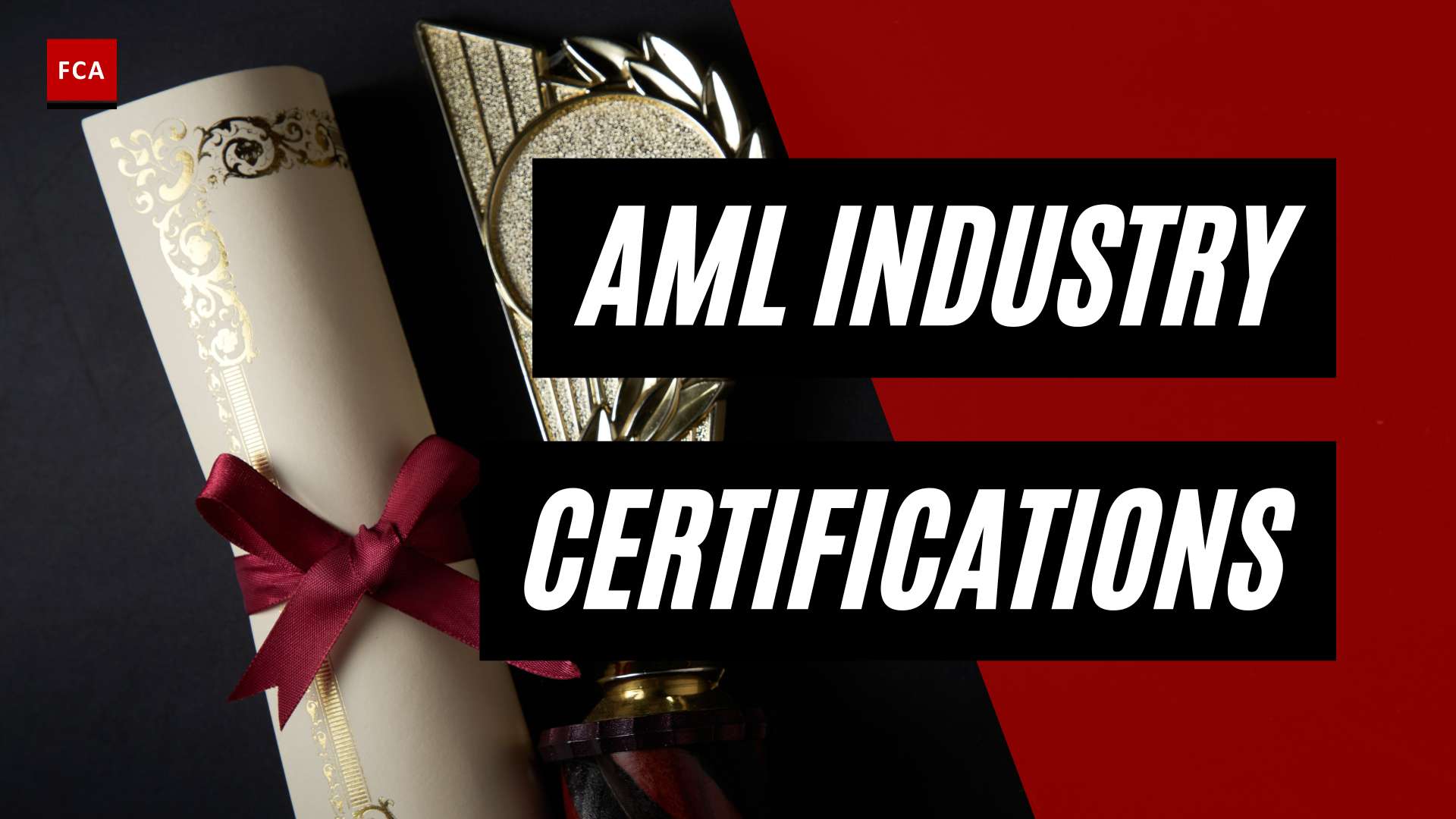Starting a Career in AML
Embarking on a career in Anti-Money Laundering (AML) can be a rewarding and impactful choice. AML professionals play a vital role in detecting and preventing financial crimes, ensuring the integrity of the global financial system. In this section, we will explore the introduction to AML careers and highlight the importance of AML professionals.
Introduction to AML Careers
AML careers offer professionals the opportunity to make a significant difference in combating financial crimes, such as money laundering, tax fraud, corruption, and illicit trade. Individuals working in AML are responsible for developing and implementing strategies to identify and mitigate the risks associated with these illegal activities.
Engaging in an AML career provides a diverse range of roles and responsibilities. These can include conducting investigations, analyzing financial transactions, developing compliance programs, and collaborating with law enforcement agencies. AML professionals are at the forefront of protecting industries, financial institutions, and society as a whole from the devastating effects of financial crime.
To excel in an AML career, professionals need a combination of analytical skills, strong attention to detail, and a deep understanding of laws and regulations. Continuous learning and staying up to date with industry trends are also essential for success in this field.
Importance of AML Professionals
The role of AML professionals in maintaining the integrity of the financial system cannot be overstated. Their efforts contribute to preserving the transparency and trust necessary for businesses to thrive and economies to function efficiently.
AML professionals help prevent criminals from exploiting financial institutions for illicit purposes. By diligently monitoring transactions, identifying suspicious activities, and reporting them to authorities, AML professionals play a critical role in safeguarding against money laundering, terrorist financing, and other financial crimes.
As financial crimes evolve and become increasingly sophisticated, the demand for skilled AML professionals continues to grow. The need for specialized expertise in compliance, risk management, and AML is evident across various industries, including banking, insurance, fintech, and government agencies.
By pursuing a career in AML, professionals have the opportunity to contribute to the global fight against financial crimes while building a rewarding and impactful career. With the right qualifications, certifications, and experience, AML professionals can unlock a wide range of career opportunities in both domestic and international settings.
To explore the different roles and career pathways available in the AML field, continue reading our article on AML career opportunities.
Essential Skills for AML Careers
To thrive in a career in Anti-Money Laundering (AML), professionals need to possess a specific set of skills that are essential for success in this field. These skills include analytical skills, communication skills, and a comprehensive knowledge of laws and regulations.
Analytical Skills
Analytical skills are crucial for AML professionals, particularly for AML analysts. AML analysts must be proficient in using software tools such as Actimize, Mantas, or Fircosoft to analyze data and monitor transactions for potential money laundering activities in line with legal regulations and company policies (Indeed). These tools enable analysts to identify patterns, anomalies, and red flags that may indicate illicit financial activities.
By utilizing their analytical skills, AML analysts can make informed decisions and recommendations based on their investigation findings. This helps organizations identify and mitigate the risks associated with money laundering, ensuring compliance with relevant laws and regulations.
Communication Skills
Strong communication skills are essential for AML professionals, particularly AML analysts. AML analysts need to have effective communication skills to collaborate with other departments, provide insights through reports, and potentially testify in legal proceedings regarding their findings (Indeed). Clear and concise communication is crucial to ensure that all stakeholders understand the implications of potential money laundering activities and take appropriate actions.
Additionally, AML analysts often work as part of a team, collaborating with colleagues from different departments such as compliance, risk management, and law enforcement. Effective communication skills enable AML analysts to convey complex information in a way that is easily understood by individuals with various levels of expertise.
Knowledge of Laws and Regulations
A comprehensive understanding of laws and regulations is a fundamental requirement for AML professionals. AML analysts, in particular, must possess knowledge of relevant laws and regulations such as the Bank Secrecy Act (BSA), USA PATRIOT Act, and the Office of Foreign Assets Control (OFAC) requirements. This knowledge ensures compliance and effectiveness in their roles.
By staying up-to-date with the latest regulatory changes and requirements, AML professionals can effectively identify suspicious transactions, implement appropriate controls, and report any potential money laundering activities to the relevant authorities. A solid understanding of laws and regulations is essential to navigate the complex landscape of financial crime prevention.
In addition to these essential skills, AML professionals should continuously invest in their professional development, staying updated on the latest trends, technologies, and methods in AML compliance. This helps them adapt to the evolving financial landscape and improve their investigative skills. By enhancing their skill set, AML professionals can stay ahead of emerging threats and contribute effectively to the fight against money laundering and financial crimes.
AML Certifications and Career Advancement
For professionals looking to advance their careers in the field of Anti-Money Laundering (AML), obtaining industry-recognized certifications can be a valuable step. These certifications not only demonstrate expertise and commitment to the AML profession but also open doors to new career opportunities.
Certified Anti-Money Laundering Professional (CAMP)
CAMP certification equips professionals with a comprehensive understanding of AML principles, regulations, and best practices.
CAMP certification covers various topics, including money laundering techniques, risk assessment, compliance programs, and regulatory frameworks. By earning the CAMP certification, professionals demonstrate their commitment to maintaining the highest standards of AML compliance and contribute to the fight against financial crimes.
Roles in the AML Field
In the field of Anti-Money Laundering (AML), several key roles contribute to the detection and prevention of financial crimes. These roles include AML Compliance Officer, AML Analyst, and AML Investigator.
AML Compliance Officer
AML Compliance Officers play a crucial role in organizations, ensuring compliance with anti-money laundering laws and regulations. They are responsible for developing and implementing AML policies and procedures to prevent illicit financial activities. AML Compliance Officers keep organizations informed about changes in regulations and assess the potential impact on their operations. They also conduct risk assessments, monitor transactions, and report suspicious activities to relevant authorities (Sanction Scanner).
To succeed as an AML Compliance Officer, professionals need a combination of knowledge, experience, and skills. They must stay updated on the changing regulatory landscape and possess critical thinking skills to assess risks and make informed decisions. Proficiency in IT systems and data analysis is essential for effectively managing compliance operations and identifying potential money laundering activities. For more information on the skill set required for AML Compliance Officers, refer to our article on compliance officer skill set.
AML Analyst
AML Analysts play a vital role in investigating transactional data to detect and prevent money laundering activities. They are responsible for transaction monitoring, data analysis, and reporting suspicious transactions to authorities (Edoxi). AML Analysts utilize their analytical skills to identify patterns, anomalies, and potential risks associated with financial transactions.
Strong communication skills are essential for AML Analysts as they collaborate with various departments, provide insights through reports, and potentially testify in legal proceedings regarding their findings (Indeed). AML Analysts typically hold a bachelor’s degree in accounting, finance, or a related field.
AML Investigator
AML Investigators are responsible for conducting in-depth investigations into suspicious activities and potential money laundering cases. They work closely with AML Analysts and other stakeholders to gather evidence, analyze financial transactions, and build cases for legal action. AML Investigators must have a strong understanding of AML laws, regulations, and investigative techniques to effectively uncover and document illicit financial activities.
Similar to AML Analysts, AML Investigators must possess strong analytical skills and critical thinking abilities to interpret complex data and identify patterns associated with money laundering activities. They may also need to utilize specialized software tools such as Actimize, Mantas, or Fircosoft to analyze data and monitor transactions (Indeed).
Understanding the roles and responsibilities of AML Compliance Officers, AML Analysts, and AML Investigators is crucial for professionals seeking a career in the AML field. Each role contributes to the overall goal of preventing financial crimes and ensuring compliance with AML regulations. By developing the necessary skills and qualifications, individuals can embark on a rewarding AML career path and make a significant impact in the fight against money laundering.
Career Opportunities in AML
As financial institutions continue to prioritize the fight against money laundering and financial crime, the demand for professionals in the field of Anti-Money Laundering (AML) is on the rise. This presents numerous career opportunities for individuals interested in pursuing a career in AML.
Growing Demand for AML Professionals
The demand for AML professionals is driven by increasing regulatory requirements and the need for financial institutions to strengthen their anti-money laundering efforts. With the ever-evolving landscape of financial crime, institutions are seeking skilled individuals who can effectively identify and mitigate money laundering risks. According to Franklin University, the demand for AML compliance analysts is expected to grow significantly.
Financial institutions are under immense pressure to comply with AML regulations and ensure the integrity of their operations. As a result, they are actively seeking professionals who possess the necessary skills and qualifications to support their AML compliance efforts. This growing demand creates a favorable job market for individuals looking to enter the AML field.
Diverse AML Career Paths
The field of AML offers diverse career paths, providing professionals with various avenues for growth and specialization. Some common roles within the AML field include:
- AML Compliance Officer: AML compliance officers are responsible for developing and implementing AML policies and procedures within an organization. They ensure compliance with regulatory requirements and work closely with other departments to mitigate financial crime risks.
- AML Analyst: AML analysts play a critical role in identifying suspicious transactions and conducting investigations. They analyze customer data, transactional patterns, and other relevant information to detect potential money laundering activities.
- AML Investigator: AML investigators delve deeper into suspicious transactions or activities identified by AML analysts. They conduct thorough investigations, gather evidence, and collaborate with law enforcement agencies when necessary.
These are just a few examples, and the AML field offers a wide range of career opportunities beyond these roles. Professionals can specialize in areas such as fraud prevention, risk management, financial crime intelligence, and more.
To excel in the AML field, individuals should consider obtaining industry certifications such as the Certified Anti-Money Laundering Professional (CAMP). They can significantly boost career prospects and open doors to higher-level positions within the AML industry (Financial Crime Academy).
By pursuing a career in AML, professionals have the opportunity to make a meaningful impact in the fight against financial crime. As the demand for AML professionals continues to grow, individuals with the right skills, qualifications, and certifications will find themselves well-positioned for a successful and fulfilling career in this dynamic field.
Continuous Education and Skill Development
In the ever-evolving field of anti-money laundering (AML), continuous education and skill development play a vital role in the success of professionals. Staying updated on AML trends and engaging in continuous learning are essential for career growth and maintaining a competitive edge in the industry.
Staying Updated on AML Trends
The landscape of AML is constantly changing, with new regulations, technologies, and money laundering techniques emerging regularly. AML analysts and professionals must stay informed about the latest developments in their field to effectively combat financial crimes. This includes staying updated on regulatory changes, industry best practices, and emerging trends.
By actively following AML news, attending industry conferences, and participating in relevant webinars, professionals can stay ahead of the curve. Engaging in discussions with peers, joining professional networks, and subscribing to reputable AML publications can also help professionals stay informed about the latest trends and developments in the field.
Importance of Continuous Learning
Continuous learning is a fundamental aspect of career development in the AML field. Pursuing additional certifications and training programs can enhance knowledge and skills, making professionals more valuable to employers and increasing their career prospects.
AML certifications are highly regarded in the industry, providing professionals with cutting-edge skills required to combat financial crimes such as money laundering, tax fraud, corruption, and illicit trade.
Continuous learning can also involve attending workshops, seminars, and training programs that cover topics such as advanced data analysis techniques, emerging technologies, and regulatory updates. By expanding their skill set and knowledge base, professionals can enhance their problem-solving abilities and adapt to the evolving demands of the AML field.
By prioritizing continuous education and staying updated on AML trends, professionals can position themselves as valuable assets in the fight against financial crimes. Through ongoing learning and skill development, AML professionals can navigate the complex world of AML compliance with confidence and contribute to the ongoing efforts to safeguard the integrity of the financial system.
Tools and Technology in AML
As the field of Anti-Money Laundering (AML) continues to evolve, professionals rely on various tools and technologies to enhance their investigations and streamline their processes. In this section, we will explore two critical components of AML technology: network analysis and AML software solutions.
Network Analysis in AML Investigations
Network analysis is a powerful technique rooted in graph theory and social interconnectivity that provides a visual and analytical representation of financial transactions. This technique allows investigators to identify patterns, links, and anomalies that might go unnoticed in a vast sea of data (FlagRight).
By leveraging network analysis, AML professionals can reveal connections and relationships between individuals, entities, and transactions. This analysis assists in detecting shell companies or phantom entities used in money laundering, enabling investigators to identify entities that display unusual characteristics or share markers suggesting they might be part of a shell network (FlagRight). Network analysis can also reveal repeat offenders or entities consistently engaging in suspicious activities, providing investigators with a longitudinal view of transactions over time (FlagRight).
Modern network analysis tools allow for real-time visualization in AML investigations, enabling the identification of suspicious patterns as they emerge, rather than after the fact. By providing investigators with timely insights, network analysis assists in proactive risk management and fraud prevention (FlagRight).
AML Software Solutions
To effectively manage the complexities of AML investigations, professionals rely on specialized software solutions designed specifically for AML purposes. These software solutions offer a range of functionalities and features to streamline investigations, monitor transactions, and ensure compliance with regulatory requirements.
AML software solutions encompass a wide range of capabilities, including transaction monitoring, risk assessment, customer due diligence, and suspicious activity reporting. These solutions automate manual processes, analyze large volumes of data, and flag potential suspicious activities for further investigation.
By leveraging AML software solutions, professionals can enhance the efficiency and effectiveness of their AML efforts. These tools provide advanced analytics, customizable workflows, and real-time alerts, enabling AML teams to identify and mitigate risks more efficiently. Additionally, AML software solutions often incorporate regulatory updates and evolving compliance requirements, ensuring that investigations align with the latest industry standards.
To choose the most suitable AML software solution, organizations should consider their specific requirements, such as transaction volume, scalability, and integration capabilities. Selecting the right software solution can significantly enhance the capabilities of AML teams and improve overall compliance efforts.
In the rapidly evolving landscape of AML, professionals must stay abreast of the latest tools and technologies. Network analysis and AML software solutions are essential components of an effective AML program, providing investigators with valuable insights, streamlining processes, and strengthening compliance efforts. By harnessing the power of these tools, AML professionals can stay ahead in the fight against financial crime.
Compliance Officer Skill Set
Compliance officers play a vital role in combating financial crimes and ensuring organizations adhere to regulatory requirements. To be effective in this role, compliance officers need to possess a specific skill set that allows them to navigate the complex landscape of anti-money laundering (AML) and maintain organizational integrity. Here are three key skills that are essential for a compliance officer’s success:
Knowledge and Experience
One of the foundational aspects of a compliance officer’s skill set is their knowledge and experience in the field of AML. Compliance officers must stay updated on the latest laws, regulations, and industry best practices related to financial crime prevention. This involves regularly researching and studying AML guidelines and requirements to ensure that their organization remains compliant. By having a strong understanding of AML regulations, compliance officers can effectively assess risks, make informed decisions, and contribute to the development and implementation of robust compliance programs.
Critical Thinking and IT Skills
Critical thinking skills are crucial for compliance officers as they need to analyze vast amounts of data, identify potential risks, and make sound judgments. Compliance officers must possess the ability to interpret complex information and apply it to real-world scenarios. This includes analyzing transaction data, detecting patterns, and identifying suspicious activities. Additionally, compliance officers should have a solid understanding of IT systems and security vulnerabilities to effectively assess and mitigate risks associated with emerging technologies and digital financial services.
Importance of AML Software Solutions
In the modern era of AML, compliance officers can benefit greatly from utilizing AML software solutions. These software solutions serve as essential tools for compliance officers, offering advantages such as task automation, data analysis, and quick identification of potential problems. By automating processes, AML software solutions reduce the margin for human error and expedite the detection of suspicious activities. Compliance officers can leverage these solutions to streamline their workflow and focus on more in-depth analysis, risk assessment, and strategic planning.
Moreover, AML software solutions utilize machine learning algorithms to adapt and stay ahead of evolving money laundering tactics. This enables compliance officers to proactively detect and mitigate emerging threats. By enhancing efficiency and accuracy, these solutions strengthen overall compliance frameworks and support compliance officers in their mission to maintain the integrity of their organization.
By possessing the necessary knowledge, critical thinking skills, and utilizing AML software solutions, compliance officers can effectively combat financial crimes and ensure regulatory compliance. As the AML landscape continues to evolve, it is essential for compliance officers to continuously develop their skills and stay updated on emerging trends and technologies to stay ahead of potential risks and protect their organizations.









